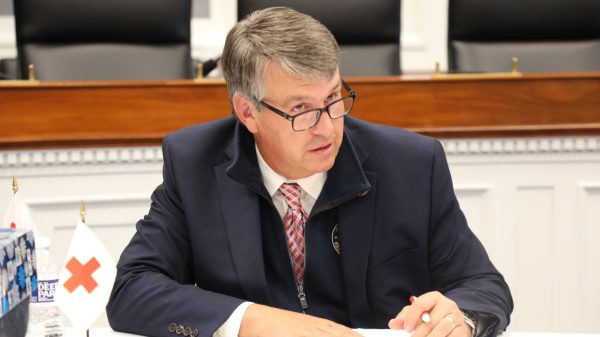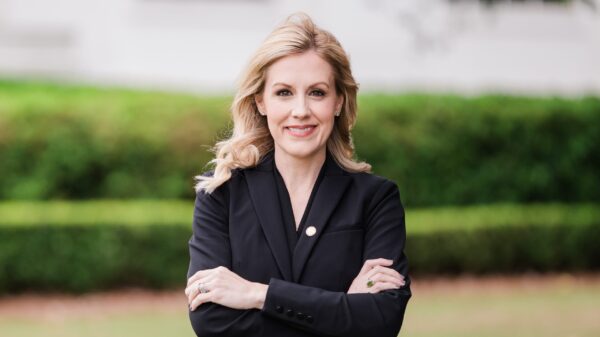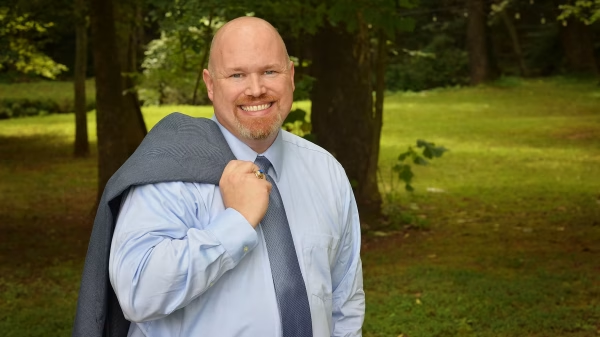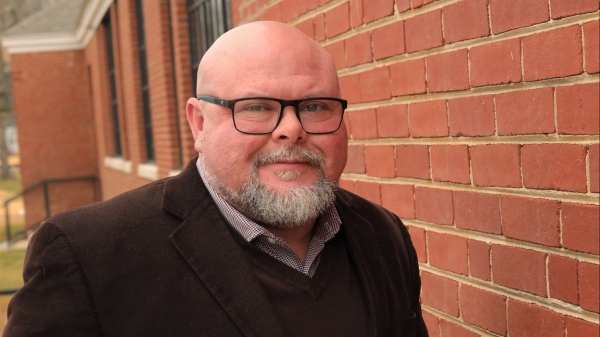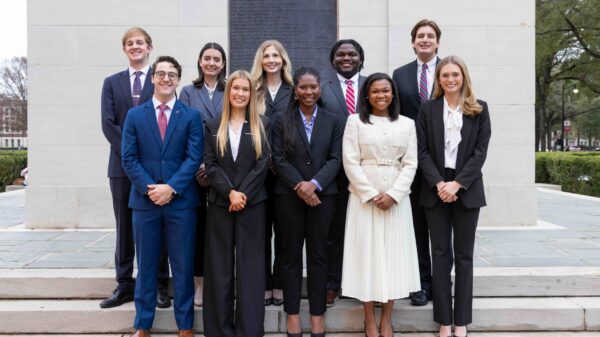By Chip Brownlee
Alabama Political Reporter
AUBURN—House Speaker Mac McCutcheon, speaking at a forum in Auburn on Thursday, warned that the State could be close to an infrastructure “crisis” if it doesn’t reform funding mechanisms.
“It is a major, major issue that is so vital to the growth of this State,” McCutcheon said, speaking to a group of Auburn students at an SGA-sponsored forum. “We’re almost to the point where we are going to be at a crisis situation in a few years.”
The Legislature has not adjusted the State gas tax, which funds new infrastructure projects and repairs, since 1992. The revenue being collected today, McCutcheon said, isn’t enough to maintain and expand Alabama’s aging and ailing infrastructure.
On Wednesday, a preliminary compilation of 50 nationwide priority infrastructure projects was released, and Alabama was nowhere on the list.
The list is reported to have been submitted to President Donald Trump’s transition team from the National Governor’s Association and could be the baseline for a nationwide infrastructure plan — funded, at least in part, from Washington.
Yasamie August, a spokesperson for Gov. Robert Bentley, said Bentley submitted projects to the list, but miscommunication with the NGA led to Alabama’s omission.
The possibility for the Federal infrastructure project comes at a time when Alabama will soon begin winding down its own infrastructure improvement project, the Alabama Transportation Rehabilitation and Improvement Program (ATRIP). The program was launched in 2012 by Bentley and was aimed at investing over $1 billion into the State’s dilapidated roads and bridges.
Within the next two years, the State will begin paying down the billion-dollar debt incurred from the project, and those payments will come out of the General Fund — placing yet another big-dollar expenditure on the State’s growing budget.
By the time ATRIP is completed and money starts flowing out to pay off that loan, one of ALDOT’s budgets — the Road Enhancement Fund, which funds new roads and expansions — will be left with only $45 million for the entire State.
If Alabama doesn’t get its own accounts in order, McCutcheon said at the forum, then it may not be capable of benefiting from a Federal infrastructure plan. The plan may be carried out through a Federal grant, and the State will be expected to provide some matching funds, McCutcheon said.
The funding for a program like that would need to come out of the Road Enhancement Fund.
If the Alabama Department of Transportation has no funding to put toward any projects, then the State could lose millions, if not billions, in Federal assistance.
$45 million probably won’t get the State very much matching funds from a Trump infrastructure plan.
That loss in assistance could put Alabama even farther behind in terms of infrastructure modernization and economic growth, McCutcheon said.
“If it is a match, then we can only match what we have,” he said. “That’s why the debate needs to continue about what we are going to do in funding our roads.”
Even with ATRIP improvements coming to a close, Alabama’s infrastructure is still mediocre, according to the American Society of Civil Engineers. In a 2015 study, ASCE gave Alabama’s infrastructure a C minus. Alabama’s roads, waterways and transit received Ds.
More than 1,400 of the State’s 16,000 bridges were reported as structurally deficient, and six percent of the State’s major roads were in poor condition, costing the average motorist more than $300 a year, according to the report.
ATRIP improved many of the State’s poor roads, but more needs to be done to bring Alabama’s roads up to a passing grade.
Several major projects were on Bentley’s wish list, including an $850 million plan to build a six-lane bridge across the Mobile River, expanding the capacity of Interstate 10 between Mobile and Baldwin Counties. The 52-mile Birmingham Northern Beltline bypass, a $5.2 billion project, was also on the list along with other highway projects in Tuscaloosa and Montgomery counties.
The list is still preliminary, according to spokespeople for Alabama’s congressional delegation in Washington, but US Rep. Bradley Byrne and Sen. Richard Shelby have wasted no time in reaching out to Federal agencies to emphasize the need for the projects.
Throughout his campaign, Trump vowed to spend billions on a nationwide infrastructure improvement plan, upgrading the nation’s bridges, roads, airports and railways. But despite his vows, no one is really sure what his exact plans are. Regardless, Alabama wants its share.
“We send our tax dollars to Washington just like all of the other States,” said Rep. Terri Collins, R-Decatur. “We want to make sure that we’re getting back our fair share, whether it’s for roads, Medicaid or whatever.”
Rep. Anthony Daniels, D-Huntsville, who also attended the forum, joked that funding for infrastructure in Alabama was “yuge.”
But to fund needed projects like these, McCutcheon said the State should consider increasing the gas tax or updating revenue streams in some other way to make sure that the ALDOT has the funding to match any appropriations.
“Let’s look at an index formula,” McCutcheon said. “I’m open to whatever, fees, whatever we’ve got. But somehow we’ve got to address revenues coming into the State so that we can be in a position to improve our infrastructure because it is vitally important for our growth.”
The forum on Thursday, less than two weeks before the start of the Legislative Session, gave legislators an opportunity to voice their hopes for the upcoming 2017 Legislative Session.
In addition to his hopes for more revenue for infrastructure spending, McCutcheon — facing his first regular session as speaker — said he hopes the State can balance the General Fund and begin finding a lasting fix for the ailing budget.
“Because of the shortfall that we have every year, and the services that the General Fund provides dollars for, it’s very important that we address this,” he said.
McCutcheon said improving the State’s revenue streams by assessing tax laws, updating outdated fines and fees, and readdressing decades-old tax credits are all on his priority list.
Rep. Elaine Beech, D-Chatom, who sits on the House General Fund Committee, concurred with McCutcheon. She said she wants to see some long-term fixes to balance out increasing Medicaid and Corrections costs.
“It’s just one crisis after another,” she said. “We have got to come up with a way for some enhancement in that General Fund. There are no funds in there that grow. It is stagnant, but all the expenses keep coming.”
Editor’s Note: Chip is a member of the Auburn SGA, but had no involvement with the planning or management of the forum on Thursday.

